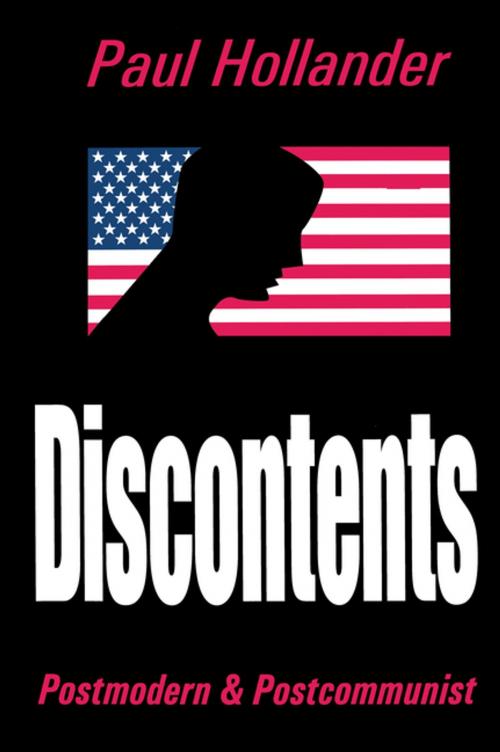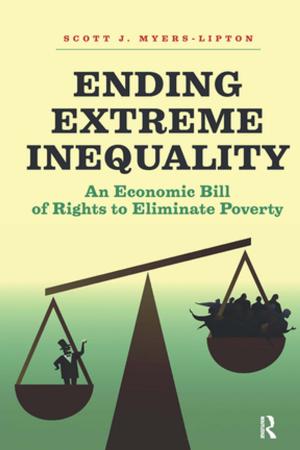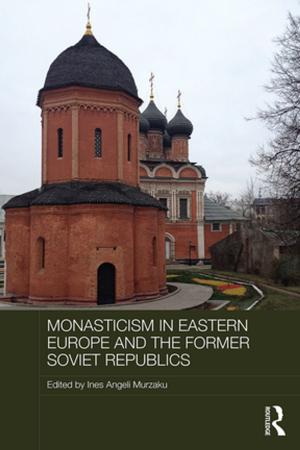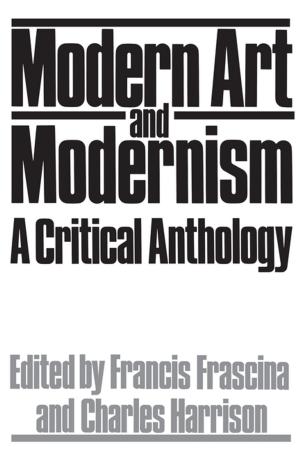Discontents
Postmodern and Postcommunist
Nonfiction, Social & Cultural Studies, Social Science, Sociology| Author: | ISBN: | 9781351325387 | |
| Publisher: | Taylor and Francis | Publication: | January 18, 2018 |
| Imprint: | Routledge | Language: | English |
| Author: | |
| ISBN: | 9781351325387 |
| Publisher: | Taylor and Francis |
| Publication: | January 18, 2018 |
| Imprint: | Routledge |
| Language: | English |
What ails people at the present time in Western and especially American society is an inexhaustible subject. Discussion of these discontents in the United States in the last decade of the twentieth century leads to an obvious question: How much and what kind of discontents are possible in a society that has experienced over a decade of economic growth, close to full employment, hardly any inflation, falling crime rates, declining teenage pregnancies, and other good things? Is there anything to worry about in a country that has become the undisputed superpower of the world and no longer faces another hostile superpower such as the Soviet Union used to be? Paul Hollander wrestles with these and other questions in seeking to understand conditions and developments within American culture and society in the context of their relationship to political systems, movements and ideas critical of the United States and Western values. Hollander examines disparate phenomena, such as the O.J. Simpson case, the banning of West Side Story in Amherst, Massachusetts, the popularity and exposu of Rigoberta Menchu, and the appeal of sports utility vehicles, which shed light on the major themes of the volume. Topics include conflicts among American intellectuals (including disputes over the Kosovo intervention), the impact of postmodernism on higher education, the persisting appeal of victimhood in American society, the flaws of American sociology, academic specialists' failure to anticipate the collapse of the Soviet Union, and the new anti-Americanism in postcommunist societies. Among topics of historical interest are a survey of Western judgments and misjudgments of the communist systems; examination of the relative neglect of political violence in communist states, and analysis of officially enforced, secular-religious cult of communist rulers. Many of these writings are linked to the author's longstanding interest in why people accept or reject particular political systems and in the contradictory human needs and desires which condition and limit the pursuit of social and political ends. Sociologists, political scientists, and the general reader will find this book of great interest.
What ails people at the present time in Western and especially American society is an inexhaustible subject. Discussion of these discontents in the United States in the last decade of the twentieth century leads to an obvious question: How much and what kind of discontents are possible in a society that has experienced over a decade of economic growth, close to full employment, hardly any inflation, falling crime rates, declining teenage pregnancies, and other good things? Is there anything to worry about in a country that has become the undisputed superpower of the world and no longer faces another hostile superpower such as the Soviet Union used to be? Paul Hollander wrestles with these and other questions in seeking to understand conditions and developments within American culture and society in the context of their relationship to political systems, movements and ideas critical of the United States and Western values. Hollander examines disparate phenomena, such as the O.J. Simpson case, the banning of West Side Story in Amherst, Massachusetts, the popularity and exposu of Rigoberta Menchu, and the appeal of sports utility vehicles, which shed light on the major themes of the volume. Topics include conflicts among American intellectuals (including disputes over the Kosovo intervention), the impact of postmodernism on higher education, the persisting appeal of victimhood in American society, the flaws of American sociology, academic specialists' failure to anticipate the collapse of the Soviet Union, and the new anti-Americanism in postcommunist societies. Among topics of historical interest are a survey of Western judgments and misjudgments of the communist systems; examination of the relative neglect of political violence in communist states, and analysis of officially enforced, secular-religious cult of communist rulers. Many of these writings are linked to the author's longstanding interest in why people accept or reject particular political systems and in the contradictory human needs and desires which condition and limit the pursuit of social and political ends. Sociologists, political scientists, and the general reader will find this book of great interest.















